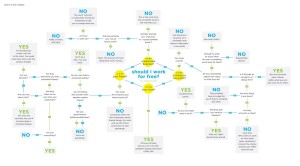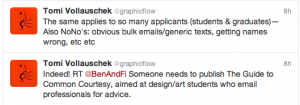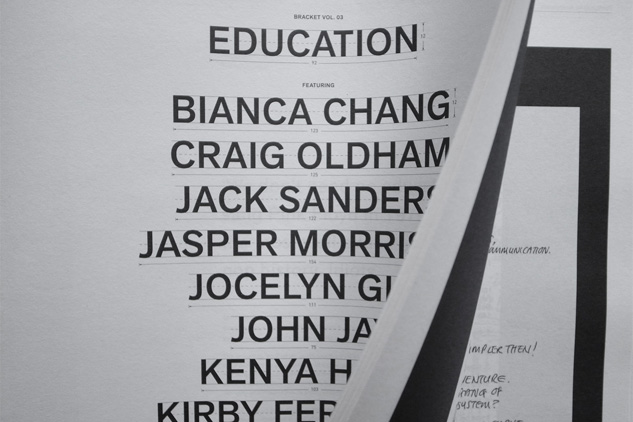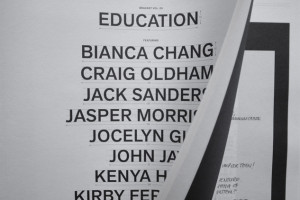The ongoing saga of job seeking & intern hardship in the UK…
Yesterday morning I woke up to this. If it was enough to make Miss Trustram boil over then it was worth a read.
So I had a look and I wrote this…
Then later on, in an unrelated exchange, I read this. Not entirely the same starting line but for the sake of debate we’ve got a situation
Graduates feel like they are being taken advantage of
V
Design studios feel besieged by inappropriate advances
If you haven’t read the @anothergraduate blog yet then go read it quickly now then come back, It’s only been up for about a week, won’t take long: READ ME
If it’s one thing, it’s honest. It could be the design intern equivalent Secret Diary of a Call Girl with a bit of work, obviously less sex… I’m getting off the point, this is serious stuff.
The bit that stuck with @leblond and I was the bit about the tea, ” I don’t make tea…” (@anothergraduate thinks it’s demeaning). Ouch. If we all stopped making tea the world would grind to a halt. We could stop there and write @anothergraduate off but let’s give them a chance. I emailed them.
“I really don’t want you to think I’m some self-important arrogant graduate who thinks they are entitled to a job” explains @anothergraduate “[ As an intern] you’re good enough to do the work but you’re not good enough to get paid for it – it’s undignified labour and I understand we have to do it but due to my financial circumstances I am aware that I will have to give this up soon”
Do I hear cries of Boo-Hoo from some of the longer toothed members? I asked @anothergraduate if they thought it was political and blamed my generation (35+) for the current economic situation. Turns out it’s nothing to do with the economy…
We have a Catch 22
“Is it the current situation? or is it because people offer themselves for free design agencies take advantage” questions @anothergraduate. “They can afford to pay; they just don’t. Why pay for a junior designer when interns are cheaper and you can get rid of them when you need to.”
@anothergraduate I’d say, first part, absolutely correct. A Catch 22. Your peers put themselves up for free, you’ve got competition to get paid. We’ve all done a freebie, the people at the top probably did it too. They don’t want to change the system because they think ‘well it worked for me, why is X complaining” Like hacking at NOTW it’s a cultural thing. But it doesn’t mean it’s right. It serves a purpose but working for absolutely no cash is not fun.
Anyone in the world who hasn’t seen this graph yet… It answers a few questions
I asked @anothergraduate what the worst character traits of design studios in dealing with graduates were… “I hate it when they don’t get back to you, regardless of how many phone calls and emails. It’s especially rude after they have interviewed you – they decide you’re not good enough for them and forget all about you.” Fair point. Let’s see things from the other side. let’s assume it’s the initial contact that’s the problem here for a moment…
Tomi Vollauschek, FL@33 On advice for Students & Graduates On How to Approach Seeking Work…
After our Twitter exchange I asked the formidable Tomi Vollauschek, Co-Founder of Stererohype and FL@33 for his opinion of what students and graduates should and shouldn’t do when approaching a studio for work. This is what he said…
DO: Please do your research: consider your interests/fascinations/strengths (and weaknesses) and prepare a shortlist of your favourite studios accordingly
Write a personal email (addressing the right person, giving tailor-made reasons for your choice and what you can bring to the studio) #sayingireallylikelondondoesnothelp
Consider the possibility that you are probably not god-sent and that many many many others are also sending applications—that should help finding the right tone of voice. #arrogancedoesnothelp
DON’T: Write generic email applications and cc your vast list of studio’s email addresses… #bad #veryverybad
If you don’t start your application by greeting a specific contact or at the very least mention the studio name you obviously didn’t do your research and/or you couldn’t be bothered writing a tailor-made application..
#dearsiroftenresultsinimmediatedeleteunreademail
If studios mention that they are currently not hiring please don’t ignore it. at the very least acknowledge that you read that bit of info but that you would like to try anyway (that’s one hurdle overcome). #trustme
To sum up, Vollauschek says “I know it’s all fairly obvious and we all keep on talking about this mind-boggling lack of common sense. I just don’t get why we continuously receive such an enormous amount of these kind of applications/enquiries? It currently feels like it got worse in the last 12 months or so… We surely can’t blame everything on colleges…”
Has it got worse? Is it a rotten culture? Internships are under the spotlight as more graduates find a voice amongst the general unrest with sites like Intern Aware questioning the legality of the entire process.
What does a Creative Recruiter say?

We need to re-evaluate how the system works. But let’s talk about REAL JOBS. I asked Darren Scotland owner of Character Creative, a young go-between creative recruitment agent for design studios and ad agencies, based in Leeds. What are graduate pitfalls from a agent’s point of view? “Surprisingly I don’t come across as many of these as you’d think – don’t get me wrong, universities aren’t spitting out hoards of design geniuses but there’s not many massive fails either – more a sea of mediocrity really” says Scotland candidly.
Universities are feeding students out of date information
“I was speaking at a graduate event before Christmas and there were a couple of students who had been to see the University’s career adviser, ” explains Scotland. “They’d been told to stick very rigidly to a two page CV as a word.doc and to include two mug shots at the bottom of the 2nd page. Very odd to see the same CV from several designers and I’m certain they’d have gone straight in the trash at any agency.”
It’s not any tougher now than it has been in the past
“I actually don’t think it is any tougher this year than it has been previously – it’s always been really, really hard! Getting that first role has always been the most difficult step for someone wanting a career in design – it’s basic, way too much supply and not enough demand.”
Alternative routes to education
“If I had my time again I’d seriously look at alternative routes. E.g
Hyperisland are piloting a school in Manchester at the moment that I think will be a big success and
Shillington College do a similar thing with traditional printed media. Many of the best designers I’ve worked with haven’t been formally educated – they’re self taught and have a genuine love for what they do.”
Advice for @anothergraduate (and everyone else) :
“I could list a few but I think, particularly relevant for @anothergraduate: Be humble; you’re not the finished article – way off in fact – so be as good as you can be and have bags of enthusiasm. Make cups of tea, run errands, do whatever you can – don’t be a walkover though – I think it’ll be pretty obvious if an agency is taking the piss.
Obviously your work will play a part in getting you your first job but, in my experience, it’s secondary to attitude.All it takes is one piece of work to prove you’ve got it. If the attitude is right, most agencies will be happy to mould and shape you to help get the good stuff out of you on a more consistent basis.”
Definite No – No’s:
No word.docs
No blind emails – Dear Sir/Madame, etc, etc…
Don’t mud sling. Sending 10-20 personal approaches is always much better than 500 generic emails.
Don’t be scared of the telephone! Always follow up your first approach to make sure people have received it. If not why not? Start the conversation…
BOTH job seekers AND job givers should follow the simple rule…
And thank you to all that contributed at such short notice to this piece, especially @anothergraduate for highlighting the problems. Good luck with the blog & job hunt.
Is it all about making tea? What’s your view?
Tweet








